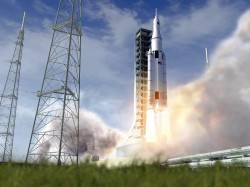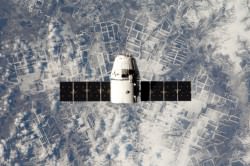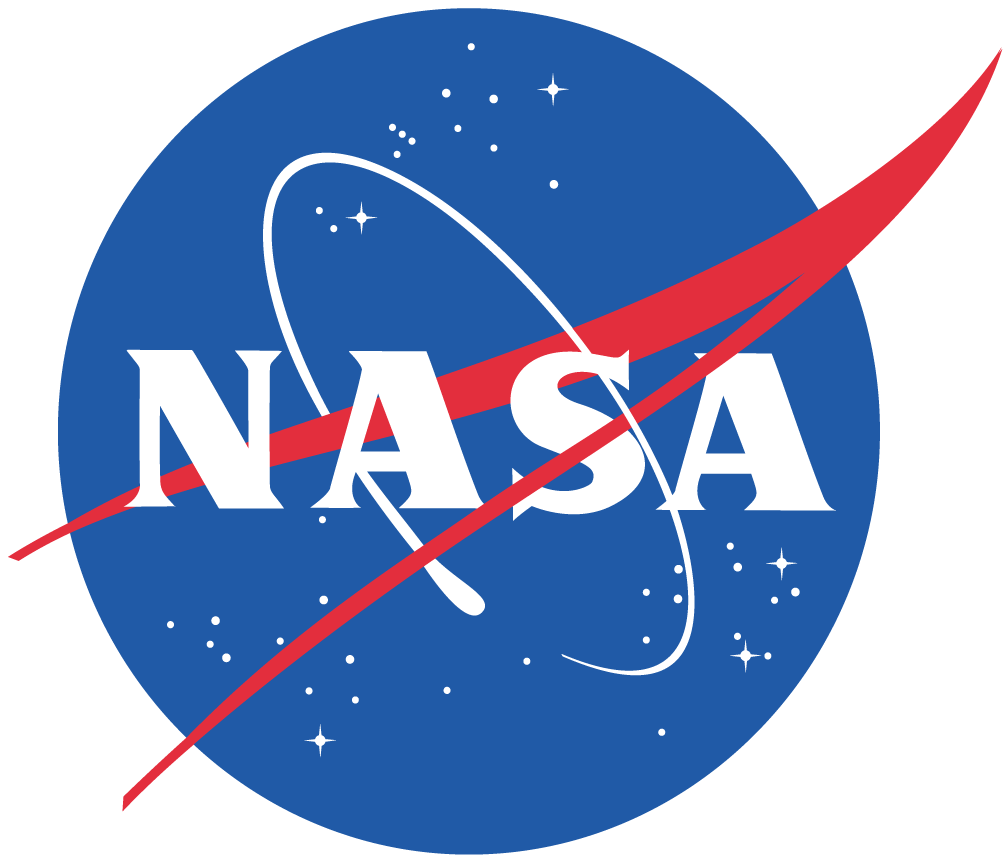As NASA’s fiscal 2014 budget proceeds through Congress, it’s still quite the ping-pong ball match to try to figure out where their budget numbers will fall. How do you think the budget will end up? Leave your thoughts in the comments.
Also, be sure to watch the latest markup on the NASA bill occurring today when the House Committee on Science, Space and Technology meets — the webcast is here. It starts at 11:15 a.m. EDT/3:15 p.m. GMT.
– Obama administration initial request – $17.7 billion: Unveiled in early April, the $17.7 billion “tough choices” NASA budget was for $50 million less than requested in 2013; the actual FY 2013 budget was $16.6 billion due to cuts and sequestration. While reducing funding opportunities for planetary science, the FY 2014 budget provided funding for a NASA mission to capture an asteroid. The asteroid mission proposal, in later weeks, did not impress at least one subcommittee.
– House Appropriations Committee – $16.6 billion. Last week, the committee’s proposal chopped off $1.1 billion from the initial request. The committee passed the Commerce, Justice, and Science appropriations bill with few changes this Wednesday. The $3.6 billion allotted for exploration is $202 million below FY 2013, which critics say will push back NASA’s ability to fund its commercial crew program to bring astronauts into space from American soil. The proposal, however, shields the Multi-Purpose Crew Vehicle and Space Launch System from schedule changes due to budgetary levels. NASA science programs in this budget were at $4.8 billion, $266 million below FY 2013. “This includes funding above the President’s request for planetary science to ensure the continuation of critical research and development programs,” the appropriations committee stated. This document contains a detailed breakdown of its budget for NASA.

– U.S. Senate Appropriations Subcommittee on Commerce, Justice, Science, and Related Agencies – $18 billion: On Tuesday, the Senate subcommittee suggested an allocation to NASA of $18 billion. A press release says the budget level will give “better balance for all of NASA’s important missions, including $373 million more for science that helps us to better understand Earth and own solar system while peering at new worlds way beyond the stars. The Senate also provides $597 million more to let humans explore beyond low earth orbit while safely sending our astronauts to the space station on U.S. made vehicles.”
– NASA’s reaction: David Weaver, NASA’s associate administrator for communications, said the agency is “deeply concerned” about the House funding levels. “While we appreciate the support of the Committee, we are deeply concerned that the bill under consideration would set our funding level significantly below the President’s request,” he wrote in a blog post, adding, “We are especially concerned the bill cuts funding for space technology – the “seed corn” that allows the nation to conduct ever more capable and affordable space missions – and the innovative and cost-effective commercial crew program, which will break our sole dependence on foreign partners to get to the Space Station. The bill will jeopardize the success of the commercial crew program and ensure that we continue to outsource jobs to Russia.”
– Reaction of Commercial Spaceflight Federation: Much the same as NASA. “Less funding for the commercial

crew program simply equates to prolonged dependence on foreign launch providers,” stated federation president Michael Lopez-Alegria, who is a former NASA astronaut. “As a nation, we should be doing our utmost to regain the capability of putting astronauts in orbit on American vehicles as soon as possible.”
– What’s next: The House Committee on Science, Space and Technology markup of the NASA bill takes place starting at 11:15 a.m. EDT/3:15 p.m. GMT (again, watch the webcast at this link.) We’ll keep you posted on what they say. The Planetary Society’s Casey Dreier, who said $16.6 billion is the smallest NASA budget in terms of purchasing power since 1986, points out that the House doesn’t have the final say: “The Senate still needs to weigh in, so this House budget is not the last word in the matter, but it’s deeply troubling. You can’t turn NASA on and off like a spigot. Cuts now will echo through the coming decades.”


Been listening in…. It’s hard to believe how conservative legislators can cut space sciences and then quote financial conservation as their prime consideration? No.. we don’t need to monitor earth’s environment from space…. What good is sending money into orbit when we have needs here on the ground? Yeah… like padding your wallets?
Am listening in to committee members voting on bill amendments… No surprises there, everybody’s toeing the party line(s). Dang… SEQUESTER this! ~@;P
The solution is simple. Cut to zero the Multi-Purpose Crew Vehicle and Space Launch System (SLS). Use the billions to fund space science and commercial launch systems. It won’t happen because space cadets fail to realize that from a budgetary standpoint NASA is not a space program it’s a congressional district jobs for re-election votes program. Has been, is and will be. It’s impressive that the excellent space science accomplishments happened given this mess.
Some of us ‘space cadets’ understand that better than you think…
It would have been nice of Obama would have gave that 7 billion to NASA instead of wasting it on Africa earlier this month.
Obama and his Czars will find a way to fumble it away.
SINGLE PLANET SPECIES DON’T SURVIVE!!
That message MUST get to the holders of the purse strings!
Support the nasa budget totally .. we need the high frontier
As a non-American, may I just say that those of us around the world who are interested in space exploration are eternally grateful to American taxpayers for funding NASA? The more the funding, the more grateful we will be!
It’s hard to imagine a super power that isn’t also leading in space. Alas, it appears it will not be us. Not because we are not capable of competing, but because we choose not to.
Exactly right. NASA is not about space exploration anymore– it is a federal jobs program for Congress-people. This space cadet understands that.
For example, the Constellation Program was not the best program for our needs or for our money, but a way to create the most jobs in Florida. Other proposals were better, but were axed because they did not create as many jobs.
The $1B cut by the House subcommittee could be reinstated if the US stopped sending $1.5B a year to Egypt.